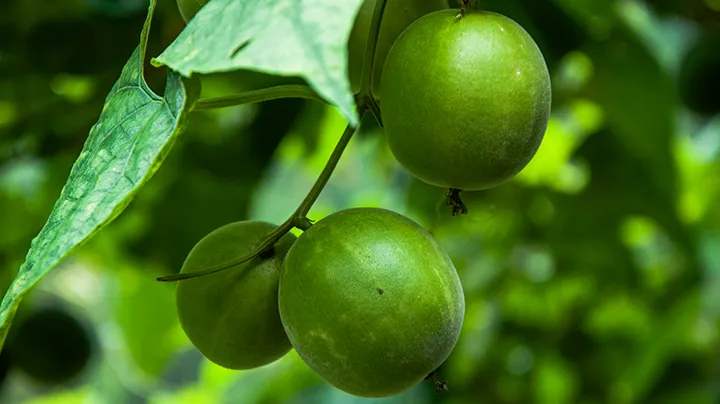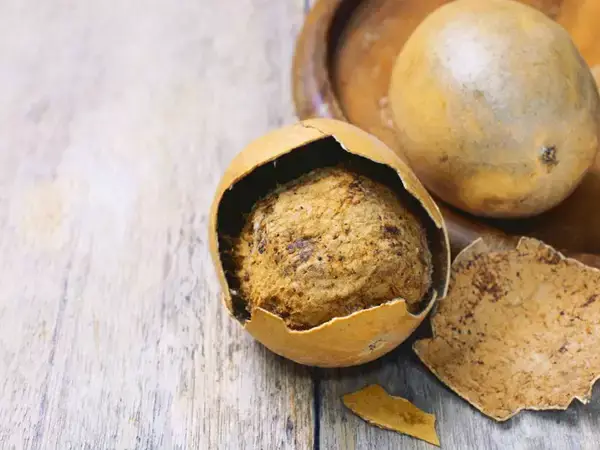In an age where sugar-related health issues are escalating and the demand for natural alternatives is rising, a small green melon from the mountains of southern China is making a big impact. Monk fruit also known as luo han guo and scientifically called Siraitia grosvenorii, has evolved from a traditional medicinal fruit into a global game-changer in the world of wellness and nutrition.
A Fruit with Enlightened Roots
Monk fruit has been cultivated since the 13th century by Buddhist monks, hence the name. Native to the subtropical, misty highlands of Guangxi and Guangdong provinces, it thrives in fertile, well-drained soil and abundant rainfall, perfect conditions for nurturing its potent sweetness.
In Traditional Chinese Medicine (TCM), monk fruit is often referred to as “the fruit of the enlightened ones.” It has long been used to cool the body, treat respiratory ailments, soothe sore throats, and aid digestion. The fruit is typically dried and boiled to make herbal infusions, with a mildly sweet, nutty, and sometimes caramel-like flavor.

What Makes Monk Fruit So Sweet?
Unlike most fruits whose sweetness comes from sugars like glucose or fructose, monk fruit’s sweetness is due to mogrosides especially mogroside V, which are 100 to 250 times sweeter than table sugar. These mogrosides are not only incredibly sweet, but also calorie-free, non-glycemic, and packed with antioxidant and anti-inflammatory properties.
This makes monk fruit extract a powerhouse for:
- Diabetics looking for a safe sweetener
- Low-carb or ketogenic diet followers
- Anyone avoiding artificial sweeteners or processed sugar
Health Benefits Backed by Tradition and Science
- Zero Calories and Carbs: Helps reduce sugar intake without sacrificing flavor or increasing insulin levels.
- Rich in Antioxidants: Mogrosides help fight oxidative stress and may support immune and cellular health.
- Anti-Inflammatory: Traditionally used to relieve cough, asthma, and even digestive discomfort.
- Heat-Stable: Retains sweetness even when baked or cooked, ideal for culinary use.
- Recognized as Safe: Approved by the FDA with no known adverse effects, monk fruit is well tolerated even in large quantities.
Culinary and Commercial Rise
Today, monk fruit is featured in everything from natural sodas and teas to granola bars, yogurt, desserts, and protein powders. You’ll find it as:
- Powdered or liquid sweeteners (often blended with erythritol or allulose)
- Additives in “keto-friendly” or “diabetic-safe” foods
- Natural flavoring agents in health-conscious brands
Its clean, fruity sweetness also avoids the bitter aftertaste often associated with stevia or synthetic sweeteners which is another reason for its growing fanbase.
And thanks to innovations in cultivation, the golden monk fruit variety has emerged, prized for its smoother, less burnt flavor. Although more expensive, it's becoming a preferred option for premium food products and teas.
From Herbal Tonic to Global Trend
The story of monk fruit is a rare blend of ancient wisdom and modern science. What began as a healing fruit used by monks is now at the heart of a broader wellness revolution. It speaks to a shift in how people approach sweetness, not just as a craving, but as a conscious choice. Whether you’re sweetening your coffee, baking cookies, or simply sipping herbal tea, monk fruit offers a delicious, health-forward solution.
Final Thought
In a world where sugar is both everywhere and under scrutiny, monk fruit quietly offers an enlightened path forward. With centuries of medicinal use and modern validation, it’s not just a sweetener, it’s a symbol of how nature, when understood and respected, can solve some of our most modern problems.
Let your sweet tooth meet its match with wisdom, flavor, and zero guilt.


Discussion
Start the conversation
No comments yet
Be the first to share your thoughts on this article. Your insights could spark an interesting discussion!